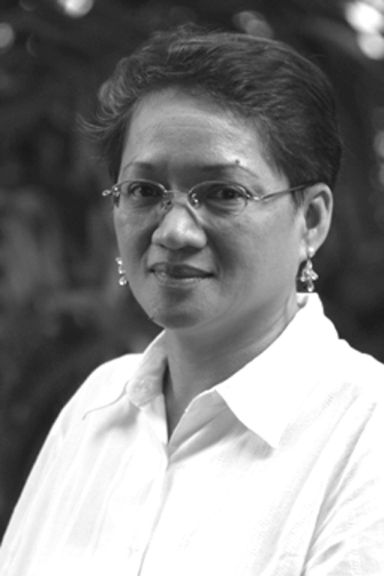
APALISOK
New York — I happen to pass by the Big Apple on my way to Halifax, Nova Scotia, Canada for an international co-op management education program when I heard about the terror attack in Resorts World Manila. Mainstream and social media which delivered the news in real time immediately chewed on the international terror angle. As I got out of the JFK International Airport at 2 p.m. on June 1 (local time), 20 people were reported dead.
I followed the news online, and as police authorities mobilized rescue teams and probed the attack, Philippine National Police Director General Ronald “Bato” dela Rosa told news reporters that the attack was the result of a robbery gone bad. I don’t know what General Bato was thinking when he said that, but even a convenience store thief would have an escape plan. In the RW attack, this robber committed suicide.
Netizens, including a few provincial journos, ridiculed Bato’s initial findings because the attacker, who was earlier described as Caucasian-looking, wore a black ski mask and ammunition vest over a black jacket and carried an M4 carbine assault rifle, looking like a classic terrorist. When the gunman committed suicide in one of the RW hotel rooms, the Islamic State (IS) entered the picture by claiming the perpetrator as its own, a foot soldier on “a lone wolf” mission.
* * *
The term “lone wolf” is associated with terrorist attacks but not necessarily in conjunction with the ideologies of extremist groups like the IS’. In fact, world media picked it up only in 29 January this year in the aftermath of a massacre perpetrated by a troubled young man who opened fire on worshippers inside a mosque in Sainte-Foy, Quebec City. Six people were killed and 19 were injured in that violent attack perpetrated by a 27-year-old student who was later charged with murder but not terrorism.
Within hours of the attack in the Sainte-Foy mosque, the Canadian minister for public safety described the killer as “a lone wolf.” The term is now being used to describe terror attacks regardless of whether or not the perpetrators are identified with left-wing or right-wing terror groups.
In the RW attack, it is obvious that IS has claimed responsibility for propaganda purposes.
The propaganda was immediately trashed after the police came out with facts about the attacker named Jessie Javier Carlos, aged 42. A tax specialist fired from the Department of Finance’s One Stop Shop Inter-Agency Tax Credit and Duty Drawback Center, Carlos had racked up P4 million in casino debts.
In 2011, the Ombudsman sued him for unexplained wealth indicating that he was using his position to pile up monies to acquire cars and real estate properties while feeding his gambling habits. He could be a high-roller in RW.
In 2014, the Ombudsman rejected Carlos’ motion for reconsideration putting finis to any hopes he had about returning to his old job. As he sank deeper into debt, his family also suffered. In the end, Carlos immolated himself in the altar of the gambling complex that ruined his life.
* * *
The Philippine Cooperative movement mourns the loss of Jaime “Jim” Gaboy, one of those who perished in the Resorts World Manila attack. Jim was the hardworking CEO of the remarkable Sacred Heart Savings Cooperative based in Galimuyod, Ilocos Sur.
I met Jim in February 2015 during a visit by representatives of the Japan Institute for Agriculture Cooperation IDACA in the Natcco headquarters in Manila. The institute is under the Japan Ministry of Agriculture and was then in town to evaluate projects of IDACA scholars who were tending over outstanding co-ops. I got invited by Ellen Limocon of Lamac MPC who introduced me to her fellow IDACA alumni, Jaime Gaboy of the SHSC, Edelito Sangco of the Socorro Empowered People’s Cooperative of Surigao del Norte and two others. IDACA reps were to hear updates about agri-projects being undertaken by the outstanding co-ops under the guidance of their hardworking leaders.
Jim was an affable guy, a well-respected co-op leader who sits in the board of directors of the Natcco Network. He was a firm believer of cooperatives who supported innovative co-op education programs. When I invited him to send delegates to “Harnessing the Power of Coops in Social Media,” a program I designed for cooperatives in April 2015, Jim sent representatives who traveled all the way from Ilocos Sur.
Early this year, he was very pleased to lead the inaugural of a new building for coop entrepreneurs while winning awards and recognition left and right for his work to achieve a better life for people in the margins. Many of them in fact have “graduated” from mere microfinance beneficiaries to professionals and entrepreneurs, thanks to the co-op that he managed.
In that sense Jim Gaboy’s professional life as a co-operator was a huge success for, to quote Ralph Waldo Emerson, “To leave the world a bit better, whether by a healthy child, a garden patch, or a redeemed social condition; to know that even one life has breathed easier because you have lived — that is to have succeeded.”